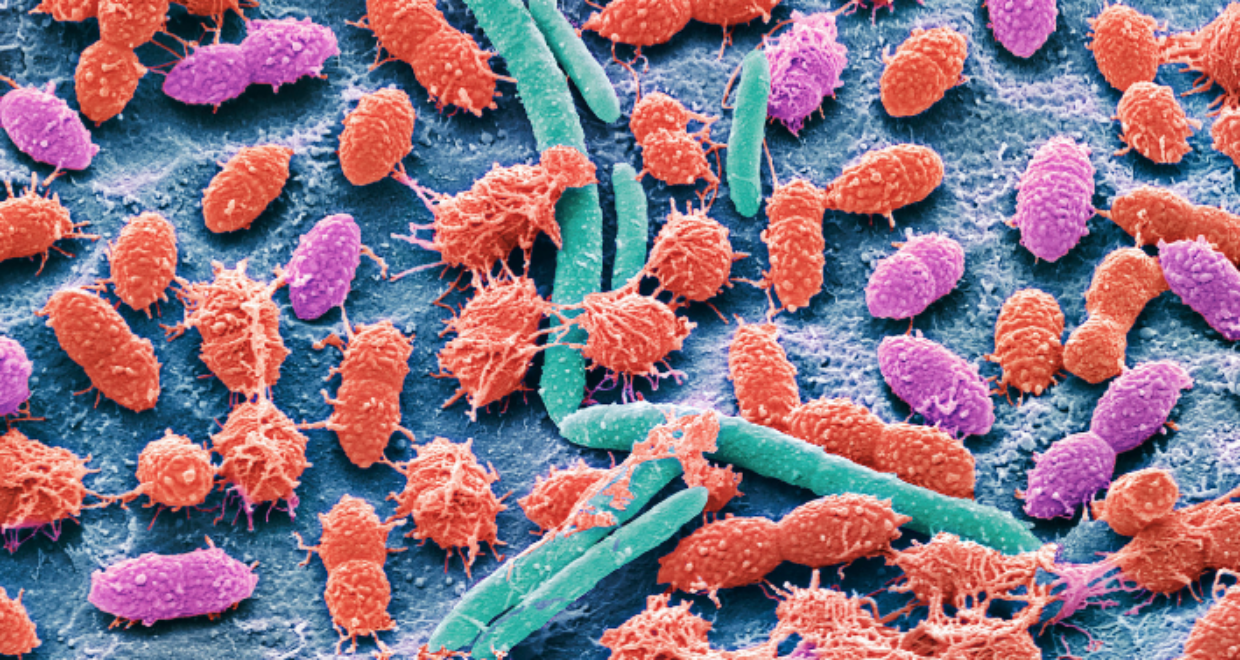Coprococcus in your gut: the secret of happiness?
The Paper of the Month for December is ‘The butyrate-producing and spore-forming bacterial genus Coprococcus as a potential biomarker for neurological disorders‘. The blog is written by authors Fleur Notting, Walter Pirovano, Wilbert Sybesma and Remco Kort. The paper is published in the Gut Microbiome, and is free to access.
Today it is well established that our physical wellbeing partially depends on the trillions of microbes in our gut, the intestinal microbiome. At same time, there is emerging evidence that these unicellular lifeforms can also influence our mental status and cognitive performance. This raises the question what species we need in the highest abundancies for optimal physical and mental health, and how these species influence our brain. While the puzzle is massively complex, current findings indicate that anti-inflammatory and neuro-modifying qualities can be mostly ascribed to oxygen-shunning species in the colon. These bacteria are professionals in the break-down of plant fibers, resulting in the production of short-chain fatty acids (SCFAs). Multiple beneficial health effects have been assigned to SCFAs, as well as (in)direct effects on the brain.
One genus that is associated with mood, cognition and neurological disorders is the Coprococcus genus. It contains three officially registered members, C. eutactus, C. comes and C. catus, which are part of the healthy, Western adult core microbiome, and present in almost every individual, but the abundance differs widely between individuals. They all produce the SCFAs acetate and butyrate, but interestingly only C. eutactus contains two pathways for the production of butyrate. With only three other bacterial species in the human gut known to possess this feature, C. eutactus may have a competitive advantage since it could produce butyrate under restricted conditions and low nutrient availability, thereby harvesting optimal energy for building blocks of its cell.
In line with the acclaimed health benefits of SCFAs, the low abundance of the Coprococcus species has been linked to a higher incidence of for instance obesity, Diabetes Mellitus II and inflammatory bowel disorder. Of note butyrate, acetate and propionate each fulfill important roles in neurological functioning. For example, they are used as substrates for neurotransmitters in the brain, exert anti-inflammatory effects on specific immune cells of the brain, and influence our reward centers in the brain. An important link has been found between reduced presence of Coprococcus genus in the gut and depression based on in total eight studies (including three studies with cohorts with over 1000 people). Often, this coincided with a lower butyrate production or decrease in other butyrate-producing species, but a second explanation, supported by one of the studies, may also be found in the association between the abundance of Coprococcus and the production of DOPAC. In parallel, two studies encountered reduced abundance of Coprococcus in patients with Parkinson’s Disease and linked these to reduced DOPAC levels. Shortage of the Coprococcus species has also been observed in patients with obsessive compulsory disorder, anxiety and inflammatory disorders of the central nervous system, and in our own study, shown to correlate with language development in Ugandan children.
All in all, the Coprococcus species seem bacteria we should cherish… and feed! Luckily, nutritional intervention studies show that following a mainly fiber rich diet, and supplementation with omega-3 or vitamin D assist in the growth of Coprococcus, as fast as four weeks after the start of the dietary change. Thus, while you start chewing that pectin-rich carrot for a presumed extra dose of happiness, science needs to establish causality first , and take a closer look at the separate Coprococcus members and clearly define the mechanisms explaining how they influence our physical and mental state.
Each month a paper is selected by one of the Editors of the six Nutrition Society Publications (British Journal of Nutrition, Public Health Nutrition, Nutrition Research Reviews, Proceedings of the Nutrition Society, Journal of Nutritional Science and Gut Microbiome). Take a look at the entire Nutrition Society Paper of the Month Collection.





